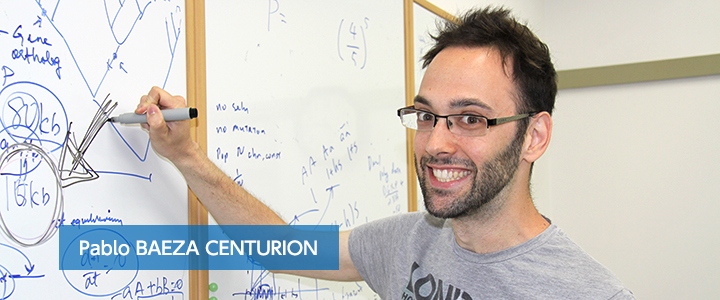
“We are glad to invite you as a 10-week intern to our program”. As soon as I read those words in my acceptance email from the NIG, my heart started to race. I had just been given the opportunity to join one of the world leading population genetics labs. I had just been given the opportunity to complete a whole bioinformatics project by myself for the very first time in my life. I had just been given the opportunity to visit Japan.
A couple of months later I was meeting Akashi-sensei and his team for the first time, a few hours after landing at Narita airport in Tokyo. From the moment I first stepped into their lab I knew I would be feeling like one more of their team.
This was my first time doing a fully bioinformatics project on my own, so I spent the first few weeks learning a bit about the python programming language which I would be using later on in my project to analyse genomic sequences from D. melanogaster. Because I did not know that much about population genetics at first, I was also given some reviews and research articles to read.
Before long, I was sitting in front of my computer extracting all sorts of interesting information from genomic sequences and learning a lot about how the genome of D. melanogaster evolves over time. Because I had the full support of my host lab (Akashi-sensei, Osada-sensei and Matsumoto-san made sure I learnt and understood the basic principles behind population genetics, whereas Kent and Neha really helped me get to grips with Python), by the time the internship was over I had successfully completed my very first bioinformatics project. I truly believe that, if you are interested in learning a bit about “popgen” or bioinformatics, this is probably one of the best labs an intern could work at.
I think that one of the coolest things about the NIG internship programme is how you get to meet people from all over the world. Not only were all other interns foreigners (they came from all over the world, from places like Serbia, India, Malaysia, the UAE or the Philippines), but a lot of the staff at NIG is international as well. This means that landing an internship at the NIG will prepare you for dealing with people from all sorts of different cultural backgrounds, which is vital if you’re thinking of becoming a research scientist and (hopefully) meeting up with and collaborating with other labs around the world.
If you are reading this, and you are thinking about applying for a place in this internship, I absolutely recommend that you do so. You will not regret it for a second and you’ll have one of the most exciting experiences in your life, in one of the most exciting countries in the world.